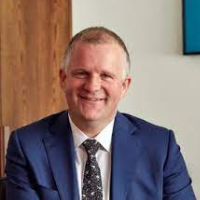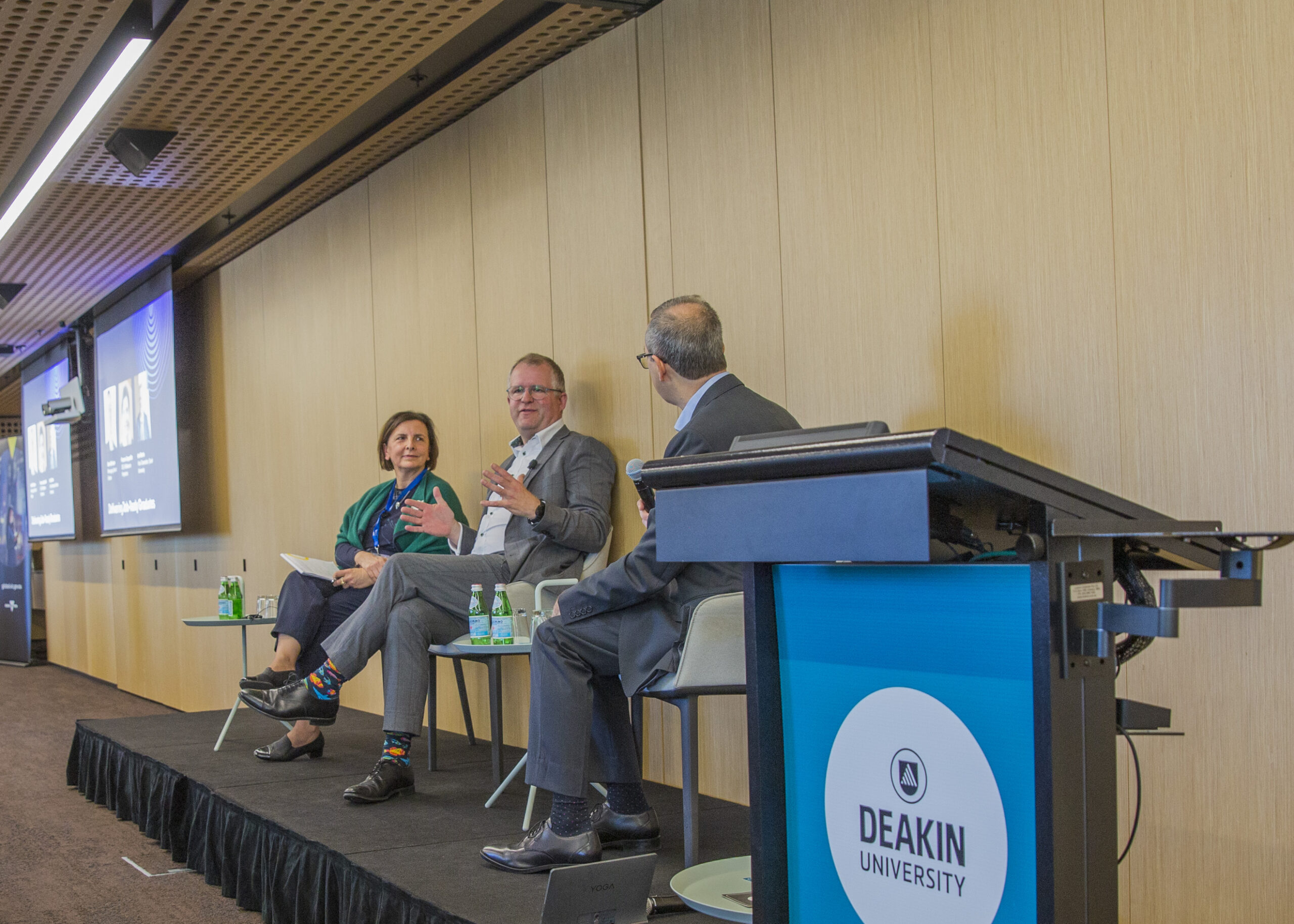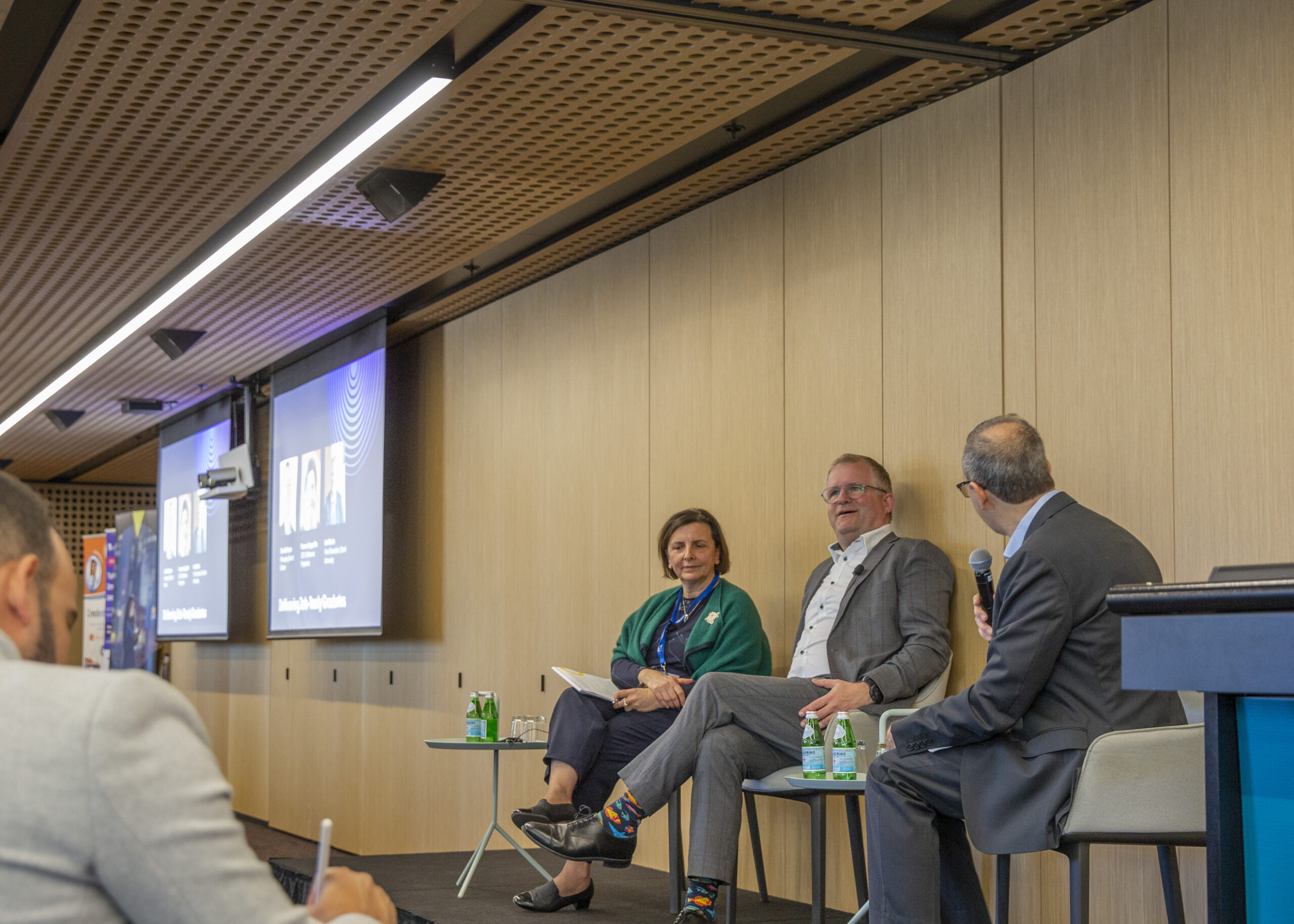This session was part of the Melbourne EdTech Week 2022. This conversation titled “Delivering Job-Ready Graduates” was recorded on Tuesday 9 August 2022 at Deakin Downtown in Melbourne, Australia. Iain Martin, Dan McFadyen, and Frances Coppolillo were in discussion.
Institutions can provide the training, but what about the experience? Graduates come out with a certification or degree, but industry is looking for the applicable skills to ensure their employees are successful.
Partnerships offer professional training for students, a way to source talent for employers, and links to the community for education providers. By engaging with industry and understanding what they are specifically looking for, institutions can not only source the right talent but design the program to suit the current expectations of graduate skills.
Frances Coppolillo of Melbourne Polytechnic and Iain Martin of Deakin University spoke to Edalex Managing Director Dan McFadyen about how partnerships can respond to this skills challenge.
Job-ready graduates
Hyper-local partnerships
EdTech partnerships
Engaging alumni
Job skills confidence
Think Big, Drive Change, Transform Learning
Job-ready graduates
Everyone is a tech worker now, says Frances Coppolillo. There will be the specialist, but in every job there will be some level of data analysis engagement and competency that will be required.
In the TAFE sector in particular, they have been working with industry for a long time. Industry has their own timeframe and business processes, so the role of TAFE has to be active listening and problem solving. Engaging with industry of what they need allows TAFE to provide their training expertise. This flexibility is essential to a relevant program.
Hyper-local partnerships
The challenge with the hyper-local partnerships in Australia is that there are only a few large employers with the capital and resources to create talent training pathways. For small and medium-sized organisations, it might be worthwhile for these businesses to come together and create a consortium, says Iain Martin. They could pool their resources together in order to create these talent-focused partnerships with institutions.
There are innovative ways these partnerships can work. As an example, Frances Coppollilo discussed how the Northern Food Group worked with Melbourne Polytechnic to address a manufacturing challenge. There was a business that was manually calculating and administering the correct cheese-fat percentage for ricotta, and were looking for a way to automate it. Students then created an algorithm that executed this percentage perfectly. When industries bring these specific gaps forward to institutions, there can be interesting ways to source the right talent.
EdTech partnerships
Solutions and problems between industry and providers may not always align, says Iain Martin. Institutions need to gain a real understanding of what all the different stakeholders want from the university, and then engage with EdTech suppliers to see how they can serve.
It is not necessarily about the most new, exciting solution, but how easily it fits into the systems they have already. Universities are often wondering: how do we integrate it as part of our whole technology ecosystem?
Engaging alumni
Alumni can inform the partnerships for an institution. Frances Coppolillo explained the Overseas Qualified Professionals Program as an example of this. In this 12-week program, students both study and work within industry. Many of the graduates end up remaining in the companies they gained industry experience from.
Graduates often come back to support current students and provide new employment opportunities for the next cohort.
Your students become your industry of tomorrow, says Frances Coppolillo.
Job skills confidence
There can be some issues for graduates around explicitly identifying a portfolio of skills through lived examples, says Iain Martin. This is key to doing well in an interview, which can often be missed by students. Institutions should prioritise giving students the confidence that communication and teamwork skills really matter, and then assist them in demonstrating this value to a potential employer.
Graduates can say what programs they have used, but looking at it all holistically can be challenging, says Frances Coppolillo. Even developing a script can be helpful for them to use and follow when entering these interviews.
Think Big, Drive Change, Transform Learning
In response to this Melbourne EdTech Summit theme, Iain Martin and Frances Coppolillo were asked what they see as key to transforming the delivery of job-ready graduates.
Having more industry partnerships co-located or physically close to what the institution is doing, says Iain Martin. Co-location deepens that cross-organisational relationship.
For Frances Coppolillo, a virtual workplace at the centre of teaching where industry can also participate would be beneficial. This would help give practical and real-world skills to students, while utilising interactive digital technology.
Speakers

Frances Coppolillo
Frances Coppolillo is an experienced senior leader in Victoria’s Education sector, she has led the design and development of programs and services in Vocational Education and Training and in Higher Education.

Iain Martin
Prof Iain Martin is Vice-Chancellor and President of Deakin University. He came to Deakin from the position of Vice-Chancellor of Anglia Ruskin University in the United Kingdom and before that Deputy Vice-Chancellor Academic at the University of New South Wales.

Dan McFadyen
For more than 20 years Dan has shaped collaborative teams to evolve services businesses ato enable innovation in education. These passions fuelled varied roles from a start-up developing the award-winning EQUELLA software to global educational powerhouses Blackboard and Pearson. Today he is the Managing Director at Edalex.


